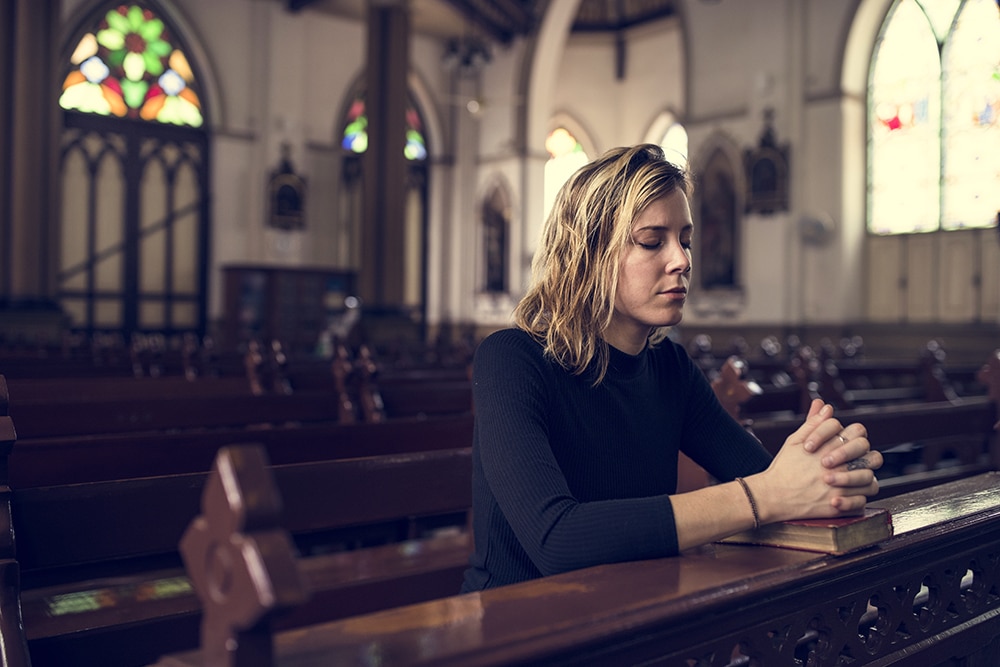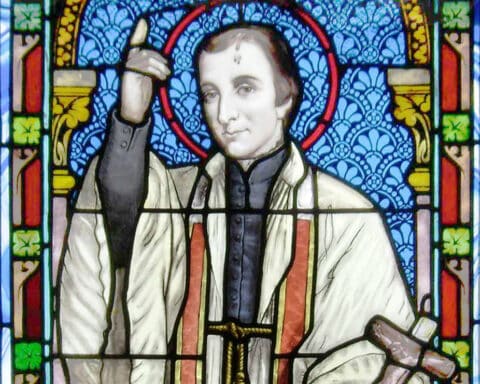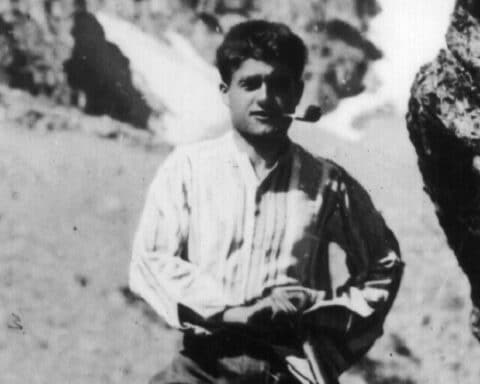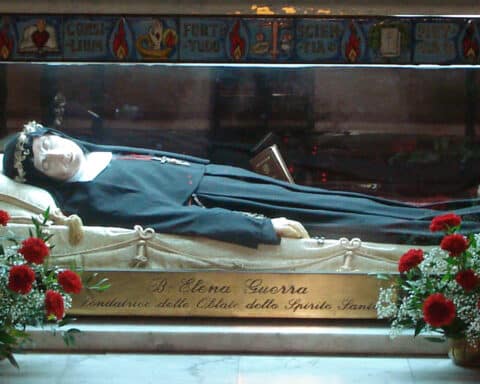
— Edward R. Lipinski, Brooklyn, New York
Answer: The charge of violating the First Commandment would only be the case if Catholics were worshipping Mary or the saints. But we aren’t, and hence there is no violation. Part of the misunderstanding is that some among Protestants equate prayer or praying with worship. But the word “pray” means first “to ask.” For example, in a legal brief, the document will often conclude: “The defendant prays the court to find in his favor.” So, to pray in its original meaning meant to ask or request, and only in recent times has it come to be equated merely with worship. When as Catholics we say, “Holy Mary, Mother of God, pray for us sinners …” we are requesting her to ask of her Son on our behalf, as she did at the wedding feast at Cana. Her prayers at Cana got good results! Hence it seems wise and biblical to continue to have her ask on our behalf.
As for God already knowing what we need, this is certainly true. But if that be the case, then why are we instructed throughout the whole of Scripture to pray for ourselves and for others? For Jesus in the Our Father bids us to say, “Give us this day our daily bread.” But doesn’t the Father already know we need bread? Why bother asking? Did Jesus not get the memo that praying for ourselves or asking others to pray for us was pointless? But of course Jesus was not misled. Though God knows our needs, he teaches us to ask, to pray for our needs and the needs of others.
Some others also say, “Why ask the saints to pray if you can just pray yourself?” But here, too, if that be the case then why ask anyone at any time to pray for you? Protestants surely ask for prayers and promise them as well. The point is that we can do both. We can pray for ourselves and also ask others (including the saints) to pray for us as well.
Finally, some charge that the saints are up in heaven and can’t hear us. And yet Revelation 5 describes the 24 elders as holding golden bowls, filled with the prayers of the faithful on earth. Such communication is obviously facilitated by Jesus himself, who is the head of the body, the Church. Hence just as my right hand can work with and know of my left hand only through the head, so the saints can only hear our prayers through Christ. St. Thomas Aquinas says, “God alone of himself knows the thoughts of the heart: yet others know them, in so far as these are revealed to them, either by their vision of the Word or by any other means” (Summa Theologiae, Supplement to Part II, Question 72, Article 5).
The Latin Mass
Question: I’m trying to understand more about the Latin Mass. Is it necessary to use the Roman Missal from 1962 rather than the new Missal of Pope Paul VI when celebrating the Traditional Latin Mass? What are the differences?
— Ed Schafer, via email
Answer: It is certainly possible to pray the new Mass in Latin. So, the issue is not the use of Latin per se. The issue revolves more around the way Mass is celebrated and the alteration of certain prayers and practices. The traditional Latin Mass (TLM) is celebrated facing the altar and in Latin exclusively. The readings can be said in Latin or the vernacular, and the homily is also proclaimed in the vernacular. Certain prayers that were dropped in the new Mass, such as the prayers at the foot of the altar and the proclamation of the Last Gospel, are still done in the TLM. The offertory prayers over the bread and wine prior to consecration were substantially altered in the new Mass and are retained in the TLM. Generally, the priest also speaks in a lower tone and follows strictly prescribed gestures. Holy Communion is received kneeling and only on the tongue.
So the main difference is aesthetics and to some degree in content. Both Masses retain the fundamental structures that make for the Mass, and both forms are valid. They are however experienced very differently.
Msgr. Charles Pope is the pastor of Holy Comforter-St. Cyprian in Washington, D.C., and writes for the Archdiocese of Washington at blog.adw.org. Send questions to msgrpope@osv.com.





